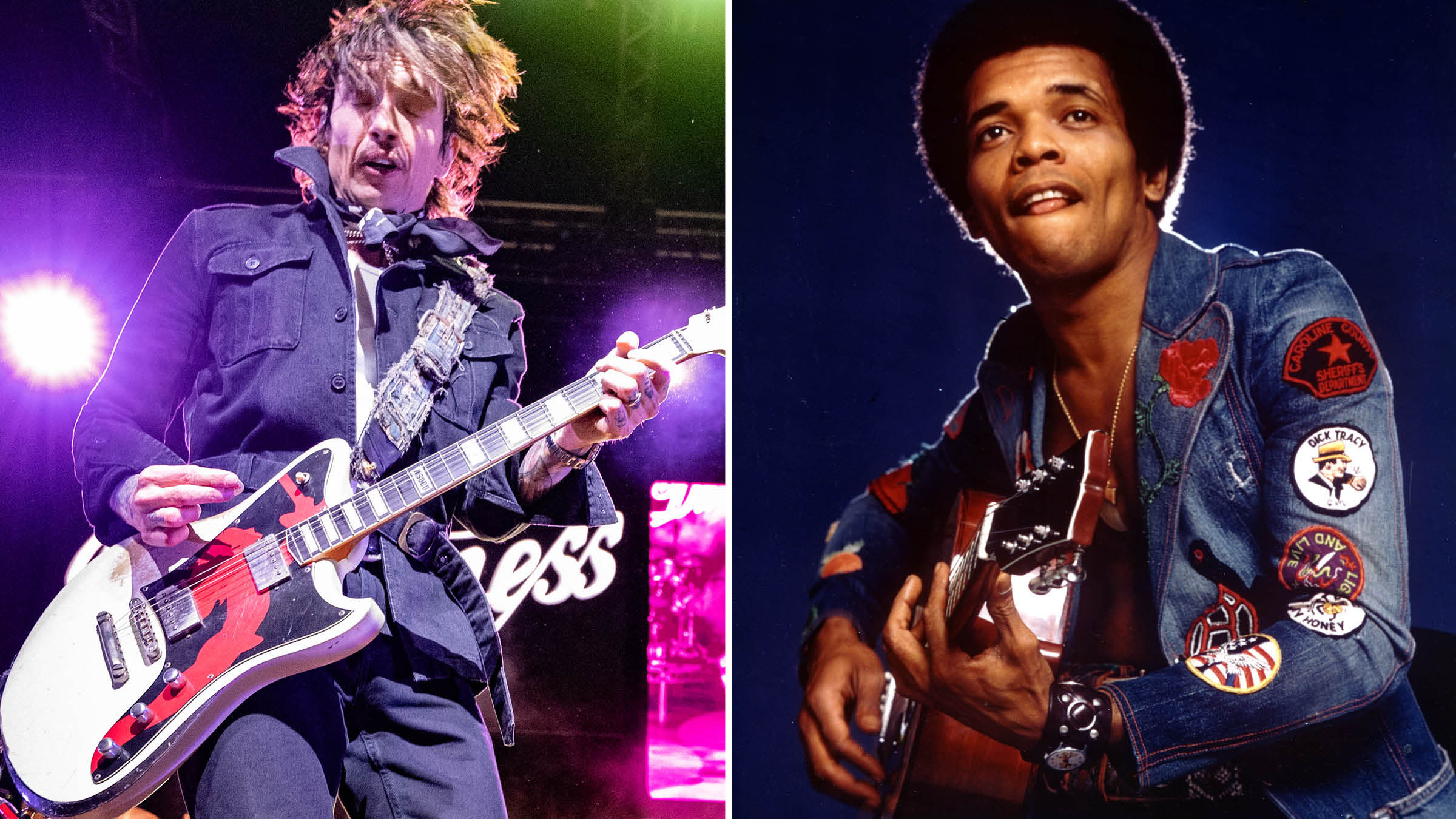
The Darkness have never made any secret of their influences and often wear them on their sleeves. There’s the box-office theatricality of Queen, the ribald overdrive of AC/DC, the grandeur and alpha riffs of Led Zeppelin and the precision-engineered pop melodies of Abba.
On occasion, they have even shared these influences with MusicRadar, as drummer Rufus Taylor did in 2023 – “the Lemon Song blew my mind” – and frontman/guitarist Justin Hawkins did when he shared 10 albums that changed his life in 2015.
Back then, Hawkins told us, “To be in a band, one should be an informed student of music,” and in his recent appearance on BBC Radio 2’s Tracks Of My Years, Hawkins gave us an idea of what he means. Talking influences with host Vernon Kay, he revealed how reggae-soul icon Johnny Nash was responsible for expanding his musical vocabulary and ultimately piquing his interest in music theory.
“When I was a kid, all I wanted to do was play solos and I didn’t think about the theory side of it,” said Hawkins. “Because I think the best way to learn is to listen to the records that you love and then play along to them.”
But you know how it goes; sometimes you listen to a record and what’s coming through the speaker doesn’t make any sense to what’s on the fretboard.
For Hawkins, that moment came when he heard the late reggae-soul legend Johnny Nash’s There Are More Questions Than Answers. This was a guy who was doing something different in an era when – just as now – there was a way of doing things in popular music, well-worn chord progressions.
“In Nashville, for example, in a hit factories in Nashville, they’d make two or three albums a day, it’d be the same musicians on all of them,” explained Hawkins. “You’d go in and you’d give them the chord charts, they’d play it through. If anything was, like, minor, if it was a minor chord or a minor 7th chord, or had anything fancy in it, like a nine or something, they would look at you like, ‘This is unnecessarily sophisticated. Who does this person think he is? We’ll play C, A minor, and we’ll do the usual kind of one three, four, one, five…’ Whatever the chord sequence was.
“And anything that strayed from that was sneered upon by the musicians who had to play all those albums in such a short time.”
Nash was wired differently. There Are More Questions Than Answers, the final track and single taken from the Texan artist’s 1972 album, I Can See Clearly Now, was case in point, and it introduced Hawkins to chord voicings he had never heard before, Nah using them to stitch together more sophisticated – more interesting – melodies.
“There’s standardised kinds of progressions that you hear on nearly everything,” said Hawkins. “Most of the time, if you’re in C, for example, it’ll go to the relative A minor, then it’ll go to an F and you’ll go to a G, and a hell of a lot of music is like that still today. It’s just standard.
“I think Johnny Nash ignored all that stuff and made really unique records that involved diminished chords, and it was probably the first time I’d ever sort of listened to one and gone, ‘What is that? I want to learn how to do that!’ For me, Johnny Nash is one of the all time greats, and I just love that particular song, because he’s doing diminished chords nearly all the way through.”
That’s not to say that you can’t get any mileage out of the raw materials that every guitar player has to have in their toolkit. Talking theory, Hawkins says he once took lessons from a blues guitar player so he could add the minor pentatonic scale to his vocabulary. He has never looked back.
What I love about music is the more time you spend immersed in it, the more that stuff goes in, and the more you understand the vocabulary of it
“If you have that scale, and that’s the only scale my brother [Dan, the Darkness lead guitarist] knows, because I taught him that as well, you can play along to just about anything as long as you know when to transpose down,” he says. “That was all I knew, and I was able to play along with things like Led Zeppelin and Guns N’ Roses, the Eagles, and all that stuff.
“With that one kind of set of notes, I was able to play along with anything – and that is enough for most guitar players. But what I love about music is the more time you spend immersed in it, the more that stuff goes in, and the more you understand the vocabulary of it.”
You can listen to the whole episode over at BBC Sounds. The Darkness' new album, Dreams On Toast, is available to pre-order, and is out on Friday 28 March through Cooking Vinyl.







